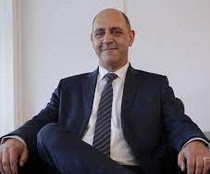First of all, the problem is cultural and educational. There has never been a program of dental education in the country. For Example, "Between a top model cell phone and a healthy smile people prefer the phone!" Even Public figures, with no financial problems, appear on TV with smiles full of holes, because most of the people think oral health is not a priority!
Second, the public health system has no dental care whatsoever. The oral health of the Portuguese depends on the private sector. Not surprisingly, many people never go to the dentist until it is too late, when pain is not more bearable!
Second, the public health system has no dental care whatsoever. The oral health of the Portuguese depends on the private sector. Not surprisingly, many people never go to the dentist until it is too late, when pain is not more bearable!
Third, the situation is even more serious when we consider that millions of Portuguese do not have access to dental care. For lack of buying power (a visit costs between 30 and 75 euros). The problem is especially serious among the old, with one half of senior citizens in Portugal not having one tooth in their mouth! The pensions are so low that they don't cover the high expenses of dentistry.
The lack of teeth results in problems of a psychiatric nature, such as isolation and shame. All in all, not a pretty picture.The problem though is not a shortage of dentists. In a region where almost no dentists even existed twenty years ago, there are now enough to attend to the population. All of them are private and not cheap. The seven Portuguese dental schools (three public and four private) now turn out about five hundred graduates in Dental Medicine.
In a few years the growth in the area will be out of control and this will bring serious problems. Of the 4,500 dentists registered in the Order of Medical Dentists (OMD), 20% are foreigners (from 34 nationalities).
The government also allows non-qualified dentists to operate legally. In a controversial decision the National Assembly passed a law legalizing all the dentists without diplomas (called "mechanics") to carry on their practice, with the dubious obligation to do a certain number of courses in a determined number of years. No one thinks that these so called dentists will ever do any courses. Many of them are semi-illiterate and some are too old to set foot in a classroom. Not surprisingly, the population with fewer financial means prefers these ? dentists? because they are cheaper.
The OMD says that in Portugal there are "hundreds of illegal dental clinics." The denunciation of this "shameless situation that occurs in Dentistry, without any control?, comes from Orlando Monteiro da Silva, president of the organization. He states that public health is at risk from the possible transmission of communicable diseases, like Aids and hepatitus, by way of blood and saliva. Furthermore, there is illegal competition for professionals who are already facing the shadow of unemployment.
Recently, the Assembly of the Republic approved a law, readied by the parliamentary group of the Democratic Social Party (PSD) , that will give to the order, powers to inspect and to combat the false dentists, who proliferate all over the country, with particular prominence in the outskirts of Lisbon.
The present law was the only way to change the Order statutes, which now give the Order power to intervening in the combat against the shamless situation that is taking place in Portuguese dentistry, where hundreds of individuals practice with no academic training whatsoever.
With this change in the law, the OMD doesn`t hesitate to "call the police" and "order the closing of clinics that operate illegally?. In addition to the Doctors in Dentistry, who are graduates of the schools of Dental Medicine, there are about 600 "Odontologistas", recognized by the National Association of Portuguese Dentists (ANDEP). Some of these dentists are Brazilians (university graduates and others are graduates of recent courses in Portugal, while others have no diploma whatsoever).
Special recognition was given to these professionals in order to preserve acquired rights. Hundreds of candidates were left out, and despite being excluded by the ANDEP, continue to practice dentistry. These are the targets to be hit. The argument of the OMD, besides the obvious illegal competition, relies on aspects of public health, like improper sterilization of material. Patients visiting these "dentists" put their health at risk!
The European Commission has instituted a suit against Portugal in the Justice Court of the European Communities, because it considers that the legislation regulating the profession of dentist violates the community directives on Dental Medicine. For the Commission, which is acting after a complaint from the OMD, the profession of ?Odontologista?, as it is defined in Portuguese legislation, has a "field of activity almost identical" to that of the graduates of the schools of Medicine and Dental Medicine. Odontology appears as an "alternative and competing" profession with that of dentist, when its professionals do not have the qualifications foreseen in European directives.
The OMD contested Law 4/99, which has already been repealed, but has still not been able to hinder the "odontologistas", who have been awarded professional documents, even some who have any university training.It is thus that the smile of the Portuguese goes!
André Almeida, Dental Student of Health Sciences Faculty of Fernando Pessoa University

















Sem comentários:
Enviar um comentário